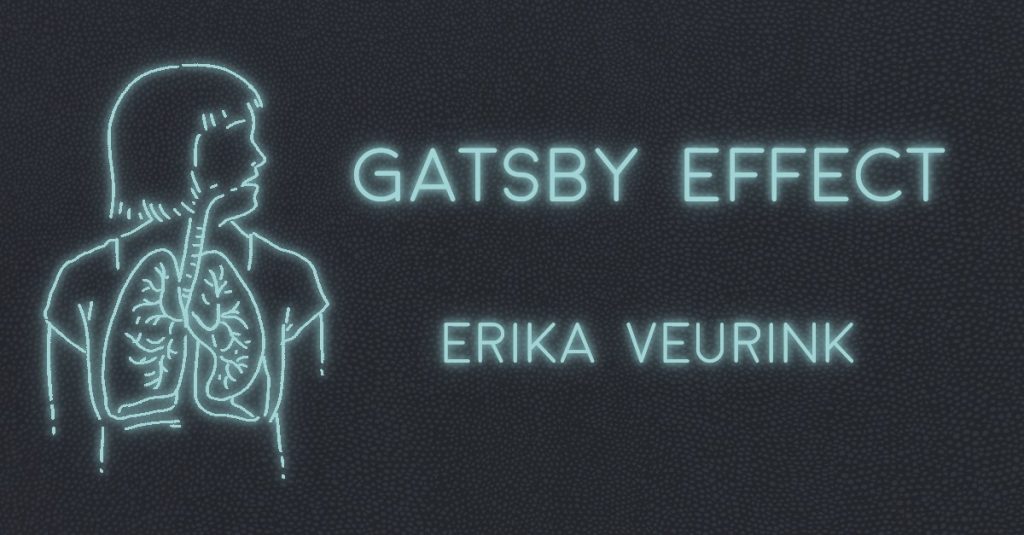The first time I had pneumonia, I wanted it to be seismic. I wanted it to almost kill me. Being fatalistic felt grown up. I laid in the West Village, drank gin from a jar and stared at where the wall hit the ceiling, the cross-like convergence, forever.
“There are crosses everywhere.” That’s what my basketball coach told me once before a game. If I was nervous or worried about a freethrow, I would look for a cross–in the rafters, the painted lines of the court, the referee’s stripes. And salvation meant something.
The first time I had pneumonia, when I was twenty, I said this, “I have pneumonia and a double lung infection.” I kept saying it, in emails, in person, on a slip of paper I passed to the boy in my film class I had a crush on. “You know they’re the same thing, right?” said the crush. “They’re not,” I said, indignant in a pleated skirt, “and how would you know? You’ve never even had it.”
No one had ever had pneumonia before I did. No one had ever been in love with the wrong person. No one had walked past a garden party on a Saturday afternoon and felt as lonely as I had, etc.
Pneumonia concerns the inflammation of white blood cells swarming the infected lungs. Only scientists understand anything on a cellular level. Cells divide, swell and split too fast to comprehend. So I was right in a sense. I was an expert on my own individuality, not alveoli.
As treatment, I watched old movies with no plots to prove I could. I watched them on a plastic chair that cost less than a sandwich and repeated to myself, “You are enjoying this.” I had plain bagels delivered. I imagined being hungry. I resumed Metropolis.
Bored, lungs on fire, I tried to study Socrates for a quiz on Monday. “One thing only I know, and that is that I know nothing.” I wore reading glasses until they gave me a headache. My sandpaper breath and inability to relate distracted me.
Breathing with pneumonia made me feel like a martyr. I dedicated each inhale to someone I loved, each exhale to something I wanted.
This time around, I’m twenty-three. I’m less sensational. I broke up with a flimsy man. I chose perfect gifts for my family that fit in my suitcase. I donated part of my bonus to a small magazine. I read a novel the entire flight back to Iowa, no breaks. And I still got sick.
To me, Iowa is a slow motion memory foam lava lamp drip. I could float there like an embryo for eternity. It makes me feel like I can’t breathe and I love it so much.
I made my brother leave Christmas mass because I was having a hot flash. That was pneumonia, not menopause. I emailed someone I shouldn’t have a poem that night and he replied he wished it was a picture of myself. I ignored it and slept. That was pneumonia.
The day after Christmas, I lay in front of the fireplace in a parka and a blanket wrapped like a skirt. “I can’t warm up,” I told my mom. She laid other quilts on top of me and scheduled an appointment. I cried. She held my freezing hand under the blanket mound. Her love makes me feel on fire.
Then the bright doctor’s office and x rays and “please take this seriously” and I was back in bed. The person I sent the poem to emailed me that he was worried for my health. He was worried the pneumonia discredited the poem.
A teacher once told me I had a “Gatsby Effect.” I thought a Gatsby Effect was something about projecting opulence. He explained it as making someone feel like the only person in the room. I blushed. “See, you just did it,” he said.
Sickness has a Gatsby Effect, then. My dad, riddled with cancer, made everyone feel like the only person in the room. His Socratic questioning and charisma outshone his dissolving life. The dozens of orchids that sprouted from our kitchen, despite the strictly stated “No Flowers” in the death announcement, were proof. That was the Gatsby Effect. When we shoved his button ups into rubber tubs to donate, we could have launched them from the banister. That would have been my idea of the Gatsby Effect.
So I was Jay Gatsby in my basement bedroom and I wanted to shine my infected lungs on someone. It happened to be the email guy. As I drafted a response to him, I felt the steroids shake to life. The gravel coughing, the untangling of the headphone cord, the smooth dip from my hip bone across my goosebumped stomach–my Green Light.
People are only supposed to get pneumonia once in their lives. The first time, I talked on the phone with email guy for hours. I made it about him and cut my hair with kitchen scissors. I wanted company and I wanted layers. This time wasn’t even supposed to happen. My actions were all transposed to the key of hypothetical.
On the phone, I heard a twist, the filling of something. “What are you doing?” I asked. “Getting a glass of water,” email guy said. I resented that he needed anything in the green dreamscape of my attention. I slept for fourteen hours. I awoke with the clarity of missing a sun cycle.
Really, I woke up to the sound of my brother on his rowing machine–the swirling hiss of water. I deleted the emails, the call. I signed a contract with myself in my journal. I laid back, looked for a cross somewhere in the textured ceiling of my childhood bedroom. I settled on one formed in the middle of the window. I made it feel like it was the only cross in the room.

